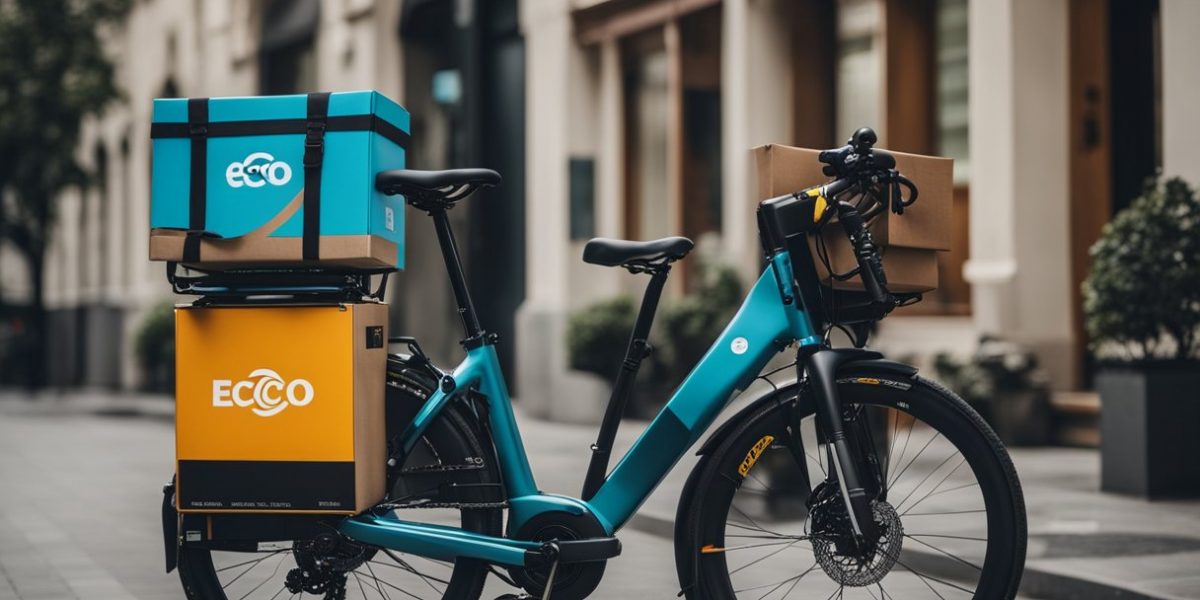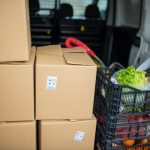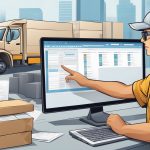The rise of e-commerce has revolutionised shopping habits around the world, leading to an increased demand for faster delivery services. Same-day delivery options are becoming increasingly common, offering the ultimate convenience for consumers. However, the environmental impact of these speedy delivery services is a growing concern. Traditional same-day delivery methods typically rely on transportation modes that generate significant carbon emissions, thereby contributing to climate change.
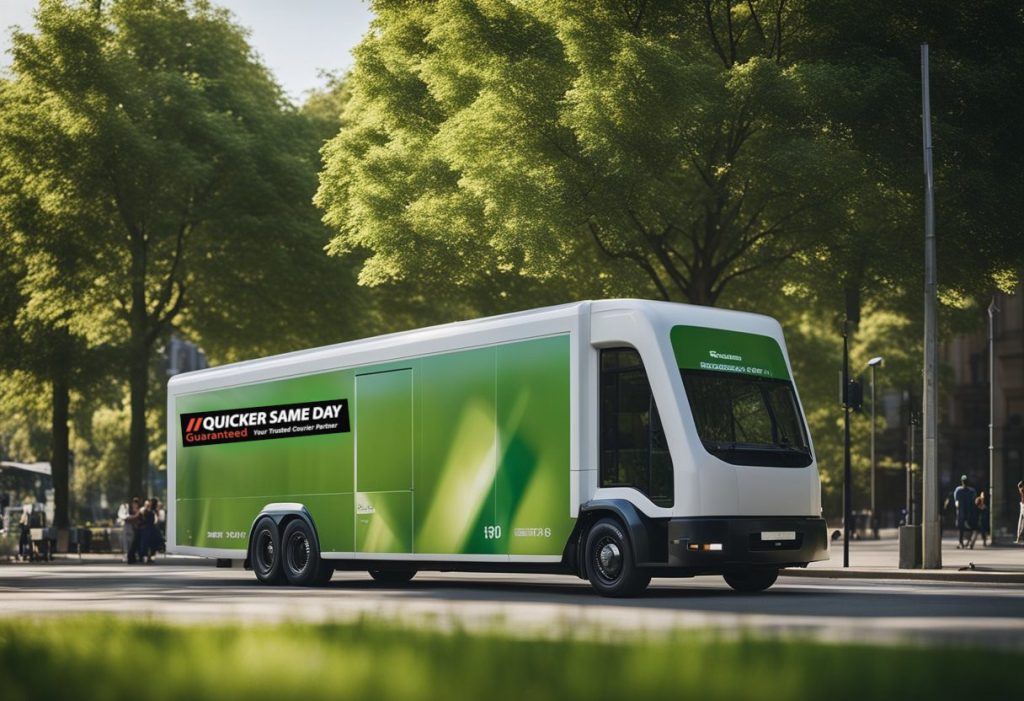
In response to this challenge, innovative eco-friendly same-day delivery solutions are emerging. These solutions aim to reduce the carbon footprint associated with the last mile of delivery – the final step of the product’s journey from a distribution centre to the customer’s doorstep. By integrating electric vehicles, optimising delivery routes, and employing bicycle couriers for shorter distances, companies are working towards more sustainable practices without compromising on delivery speed.
This shift towards green logistics reflects an increasing awareness of corporate social responsibility and consumer expectations for sustainable options. As they strive for greater efficiency and environmental stewardship, companies are discovering that eco-friendly delivery methods can also lead to cost savings and operational advantages. The evolution of same-day delivery services now includes a consideration for the planet, signalling a positive step forward for both the industry and the environment.
Fundamentals of Same-Day Delivery
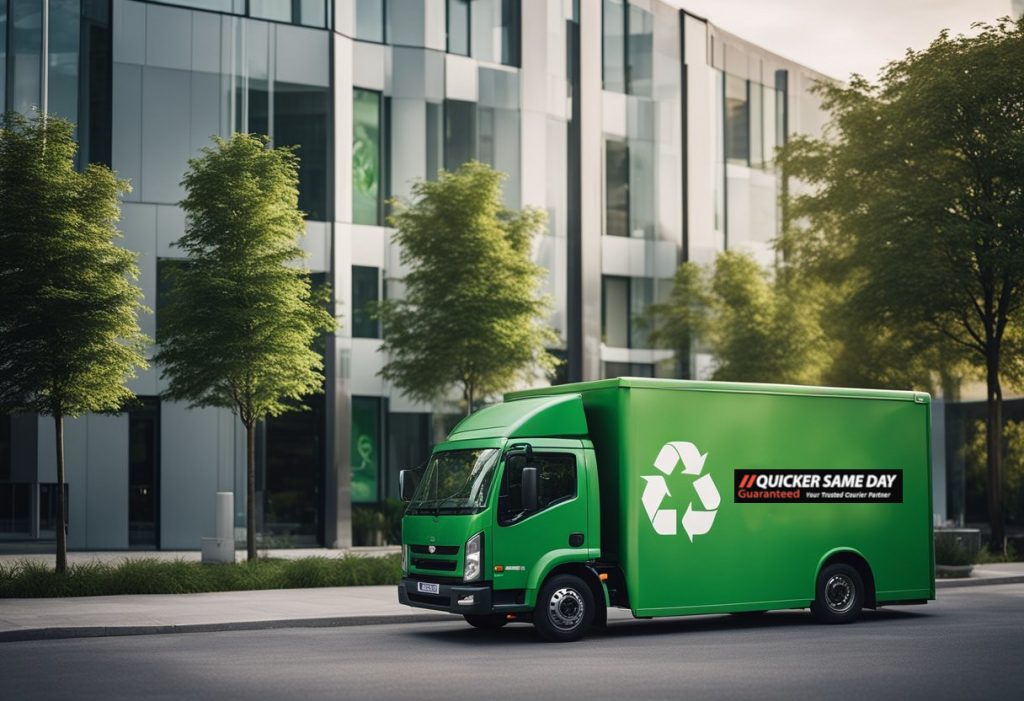
Same-day delivery systems are transforming the logistics industry by offering rapid delivery services, while the adoption of eco-friendly practices ensures sustainability.
Defining Eco-Friendly Logistics
An eco-friendly logistics system incorporates sustainable methods to minimise environmental impact. This involves the use of electric or hybrid vehicles, optimised routing, and packaging from renewable or recycled materials. Strategies such as centralised distribution points further enhance the efficiency of these systems.
Advantages of Same-Day Delivery
Same-day delivery offers numerous benefits, including increased customer satisfaction and a competitive edge for businesses. Customers appreciate the prompt service, often leading to loyalty and repeated sales. For businesses, the ability to quickly move stock can result in reduced warehousing costs.
Challenges and Considerations
- Carbon Footprint: The rapid turnaround increases the frequency of deliveries, hence potentially raising CO2 emissions unless eco-friendly vehicles are used.
- Infrastructure Needs: Efficient same-day delivery requires robust logistics infrastructure, which can be costly to implement.
- Customer Expectations: Maintaining high service levels consistently to meet customer expectations can be challenging.
- Economic Viability: Balancing the costs associated with same-day delivery to ensure it remains profitable is essential.
Technological Enablers

The advent of technologies in logistics has revolutionised the way eco-friendly same-day delivery is executed. These systems increase efficiency, reduce emissions, and improve customer satisfaction.
Route Optimisation Software
Route optimisation software plays a pivotal role in enhancing the sustainability of same-day deliveries. By calculating the most efficient routes, it minimises fuel consumption and reduces carbon emissions. Companies employ algorithm-driven solutions that consider traffic conditions, delivery windows, and vehicle capacity for optimal planning.
Real-Time Tracking Systems
Real-time tracking systems enable both providers and customers to monitor the precise location of a delivery in transit. This transparency facilitates better coordination and minimises the likelihood of missed deliveries. These systems often integrate with GPS technology to provide up-to-the-minute updates.
Automated Dispatch and Sorting
The use of automation in the dispatch and sorting process drastically cuts down on processing time and errors. Sorting centres equipped with sensors and machine learning algorithms can swiftly categorise packages and assign them to the appropriate delivery routes. This results in fewer vehicles on the road and a decrease in the overall carbon footprint of delivery operations.
Sustainable Transportation Options

The quest for eco-friendly same-day delivery relies heavily on adopting sustainable transportation options. These innovative methods are crucial for reducing the carbon footprint associated with delivery services.
Electric Delivery Vehicles
Electric delivery vehicles are at the forefront of sustainable transportation. Companies utilise a fleet of electric vans and trucks that produce zero emissions. The vehicles often feature regenerative braking systems, which recover energy during stops, enhancing their efficiency. A notable example is the electric van used by the British postal service, Royal Mail, which has significantly expanded its fleet to reduce its environmental impact.
Bicycle Couriers
Bicycle couriers offer a low-impact solution, especially suitable for urban areas. They significantly reduce congestion and pollution compared to traditional delivery vans. Delivery by bicycle is not only sustainable but often faster in dense city centres due to the ability to bypass traffic. DPD, a prominent courier service, has integrated bike deliveries into its urban operations.
Drone Delivery Systems
Drone delivery systems represent a cutting-edge solution in reducing road traffic and emissions. Drones provide direct air delivery, avoiding the need for road transportation entirely. Companies such as Amazon have been testing drones for their potential to deliver packages swiftly while markedly reducing carbon emissions. Drone deliveries are especially promising for rural areas, where they could improve accessibility while maintaining low environmental impact.
Packaging and Materials

Eco-friendly same-day delivery solutions focus intensively on minimising environmental impact through innovative packaging and material choices.
Biodegradable Packaging
Companies are opting for biodegradable materials such as cornstarch and mushroom packaging, which break down naturally without leaving harmful residues.
- Cornstarch Packaging: Mimics plastic’s versatility; perfect for moulding into different shapes.
- Mushroom Packaging: Utilises agricultural waste bound by mycelium; serves as a sturdy, mouldable alternative to styrofoam.
Reusable Container Programmes
Reusable container initiatives encourage both the business and the consumer to engage in a circular use-and-return system.
- Closed-loop System: Customers return packaging for sanitisation and reuse; decreases single-use waste.
- Italic_Container Tracking_: Sophisticated systems monitor container journeys, ensuring efficient return rates.
Minimal Packaging Strategies
The pursuit to use less material without compromising product protection has become a high priority.
- No-Box Approach: Products are shipped with minimal wrapping, often only a protective sleeve.
- Reduced Filler Use: Essential only where necessary to prevent product movement within parcels.
Policy and Regulations
In addressing eco-friendly same-day delivery solutions, it is imperative to consider the complex web of policies and regulations that govern emissions, urban logistics, and certifications. These policies establish the framework within which companies must operate to ensure their services are sustainable.
Emission Standards and Targets
The UK government enforces strict emission standards for vehicles used in same-day delivery services. These standards are designed to reduce the environmental impact of delivery operations.
- Euro 6 Standards for diesel engines: Limits NOx emissions to 80 mg/km for cars and 125 mg/km for vans.
- CO2 Targets: The UK’s target is a fleet-wide average of 95 g CO2/km for new cars.
Compliance is monitored by government agencies, and non-compliance can result in hefty fines or sanctions.
Urban Delivery Policies
Metropolitan areas such as London and Bristol are increasingly implementing policies to reduce congestion and pollution. These policy measures include:
- Low Emission Zones (LEZ): Vehicles that do not meet certain emission criteria are either banned or charged a fee for entering these zones.
- Ultra Low Emission Zones (ULEZ): Stricter criteria than LEZ. For example, in London, most vehicles need to meet Euro 4 (petrol) or Euro 6 (diesel) standards to enter without charges.
- Congestion Charges: A daily charge for driving a vehicle within the charging zones during designated hours.
Delivery companies have to navigate these policies, often integrating electric or hybrid vehicles into their fleets to maintain access to city centres.
Sustainable Business Certifications
Sustainable business certifications serve as a testament to an organisation’s eco-friendly practices.
- ISO 14001: An internationally recognised standard that specifies an effective environmental management system.
- The Carbon Trust Standard: It certifies organisations that follow best practice in measuring, managing, and reducing their environmental impact.
The attainment of these certifications is not mandatory, but it helps businesses demonstrate their commitment to sustainability and can sometimes lead to reduced tax burdens or other incentives.
Case Studies of Success
The following case studies showcase effective eco-friendly same-day delivery solutions that have been successfully implemented across various industries.
E-commerce Retailers
Company A: Adopted a fleet of electric vehicles, reducing CO2 emissions by 40% within a year. Their strategy includes dynamic routing algorithms to optimise delivery paths.
Company B: Collaborates with local bicycle couriers for last-mile delivery, achieving a 30% reduction in traditional delivery van use. Eco-packaging initiatives complement their green delivery approach.
Logistics Service Providers
Provider C: Implemented an AI-driven platform to bundle deliveries intelligently, resulting in fewer trips and a 25% decrease in fuel consumption.
Provider D: Uses solar-powered warehouses and electric drones for small parcel deliveries, effectively decreasing their carbon footprint by 20% in urban areas.
Local Businesses and Start-ups
Business E: A start-up offering a shared cargo bike network, allowing multiple retailers to deliver goods sustainably. It has grown to service over 50 local businesses within its first year.
Business F: Introduced a ‘Green Slot’ delivery option, where customers opt for deliveries at the most eco-efficient times. This approach has led to a 15% increase in carbon-neutral deliveries.
Consumer Engagement Strategies
Engaging consumers in eco-friendly same-day delivery requires clear communication and attractive incentives. These strategies help to align consumer behaviour with environmentally conscious delivery options.
Transparency and Education
Educational Campaigns: Companies should directly inform their customers about the environmental impact of same-day deliveries through informative campaigns. This could include:
- Carbon Footprint Data: Displaying the carbon emissions saved by choosing eco-friendly options.
- Sustainability Benefits: Detailing how eco-friendly choices contribute to overall environmental goals.
Website and App Clarity:
- Key information should be clearly presented on the company’s website and app, employing visual aids like infographics to highlight eco-friendly practices.
Incentives for Greener Choices
Loyalty Rewards:
- Introduce a green loyalty programme that rewards customers for selecting eco-friendly delivery options, such as points redeemable for discounts on future purchases.
Pricing Structures:
- Implement a tiered pricing strategy, where eco-friendly delivery choices are offered at a competitive price compared to traditional same-day delivery.
Customer Feedback and Improvement
Feedback Systems:
- Establish a structured feedback mechanism where customers can voice their opinions on the eco-friendliness of the delivery service.
Continuous Improvement:
- Utilise customer feedback to regularly update and enhance green delivery options, ensuring they meet consumer expectations and sustainability standards.
Future Trends and Innovations
In the realm of eco-friendly same-day delivery solutions, forthcoming trends and innovations are poised to revolutionise the industry. They will enhance efficiency, reduce environmental impact, and meet the increasing consumer demand for sustainable practices.
Advancements in AI and Machine Learning
The employment of AI and machine learning is set to further optimise delivery routes and streamline logistics. AI-driven platforms can predict delivery windows with higher accuracy by analysing real-time traffic data, weather patterns, and customer preferences. Machine learning algorithms enable continuous improvement through the analysis of historical delivery data, contributing to more sustainable delivery options.
Integration of Renewable Energy Sources
Delivery companies are increasingly integrating renewable energy sources in their operations. For instance, electric vehicles (EVs) powered by solar or wind energy significantly lower carbon emissions. Some organisations have started deploying bicycles and e-bikes for shorter routes, which not only reduce emissions but also circumvent traffic congestions, speeding up delivery times.
Collaborative Delivery Networks
A shift is being observed towards collaborative delivery networks. Multiple companies share logistics resources and delivery networks, leading to:
- Reduced numbers of delivery vehicles on the road
- Decreased fuel consumption
- Lower greenhouse gas emissions
These networks use centralised platforms to manage cross-company deliveries, which increases efficiency and maximises the use of each vehicle through pooling deliveries.
Conclusion
The emergence of eco-friendly same-day delivery options marks a significant stride towards reducing carbon footprints associated with rapid delivery services. Companies adopting green logistics demonstrate a commitment to sustainability by integrating electric vehicles, optimising routes, and using eco-friendly packaging.
The Advantages:
- Reduced Emissions: Electric or hybrid delivery vehicles contribute to lower greenhouse gas emissions.
- Sustainable Packaging: Biodegradable or recyclable materials minimise waste.
- Efficient Routing: Advanced software creates optimal routes, saving fuel and time.
Challenges Ahead:
- Maintaining cost-effectiveness in comparison to traditional delivery methods without compromising service quality.
- Ensuring scalability to keep up with the growing e-commerce demand.
Consumers are increasingly inclined to support businesses that prioritise environmental stewardship, propelling the market for green delivery options. The evolution of technology and consumer behaviour continues to influence the logistics industry’s shift towards more sustainable practices. As these eco-friendly solutions are refined, they may eventually become the standard, balancing the demand for immediacy with environmental responsibility.

